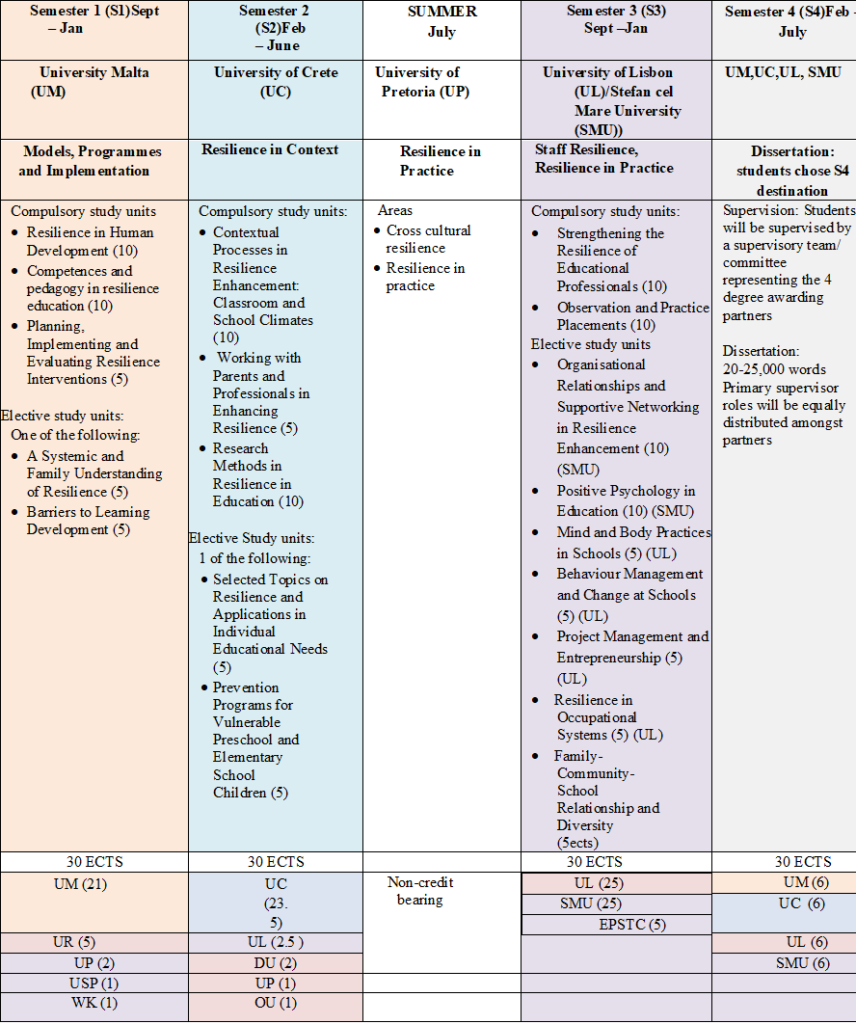Academic Programme and Curriculum
EMJM FLOURISH contains a curriculum of 120 ECTS spread over 4 full time semesters of 30 ECTS each. These include a number of compulsory taught study units, elective taught study units, a practice placement/internship, a dissertation, and an optional (zero credit) summer school. It incorporates the latest developments in the theory, research and practice of resilience in educational contexts, exposing students to a broad based, evidence informed, and multidisciplinary study of the field. The programme is informed by a systemic perspective to resilience, putting particular emphasis on how educational communities, in collaboration with families and other partners, may operate as resilience enhancing, inclusive social systems.
In the FOURTH SEMESTER, students will focus exclusively on the dissertation, where they will have the opportunity to apply the scientific approach to the study of a professional practice issue through primary data collection and analysis and the presentation of a 15,000 words dissertation. Students may do the fourth semester at one of the four Universities. The dissertation can be done independently, online, blended and face to face.
Students who complete the program successfully will be awarded a Joint Masters (M.A.) in Resilience in Educational Contexts, awarded conjointly by the University of Malta, University of Crete, University of Lisbon and Stefan Cel Mare University.
Programme of Studies

Legend: The numbers in brackets denote the number of ECTS, 1 ECTS= 25 hours of student learning
In the SUMMER TERM between the first and second year of the programme, students will also have the opportunity to attend an optional SUMMER SCHOOL in South Africa observing various schools and services, besides attending a number of workshops.

